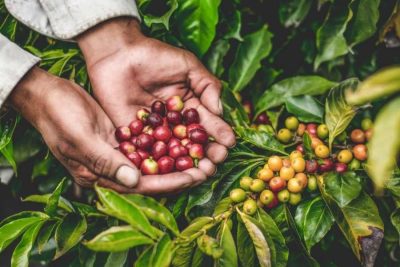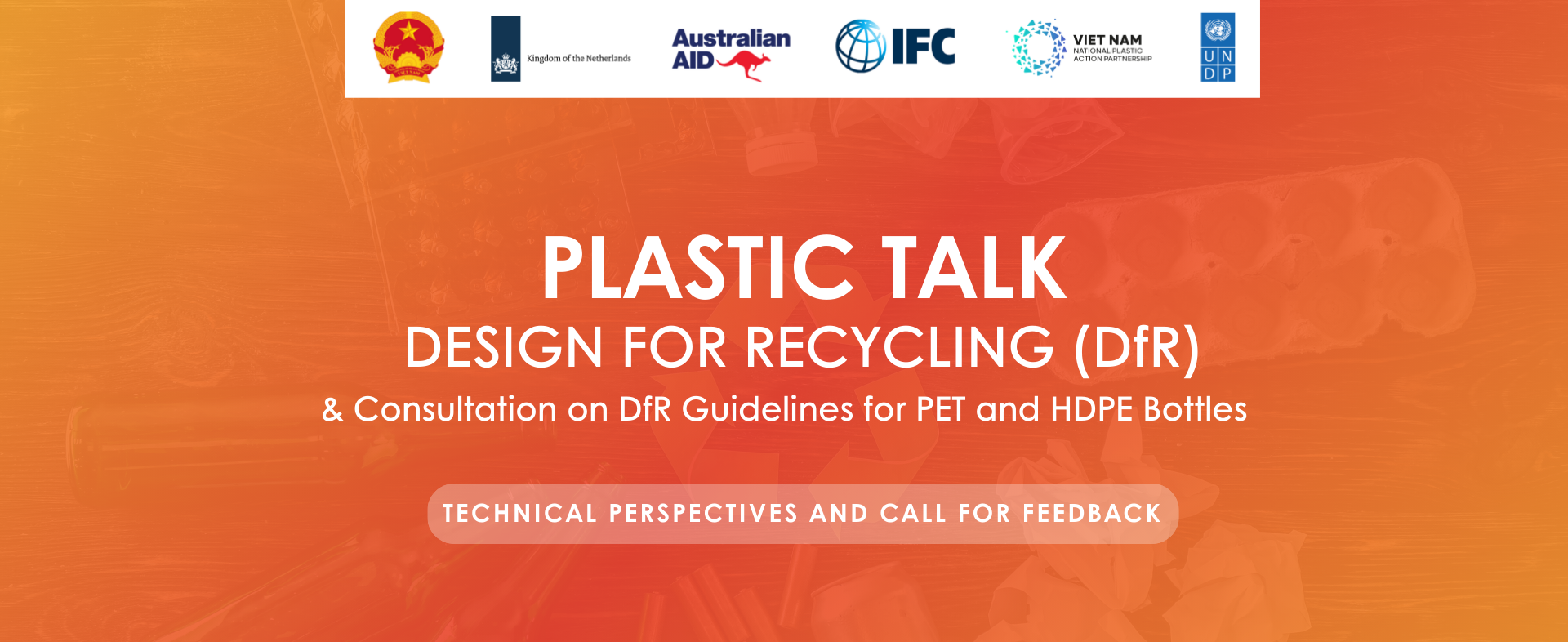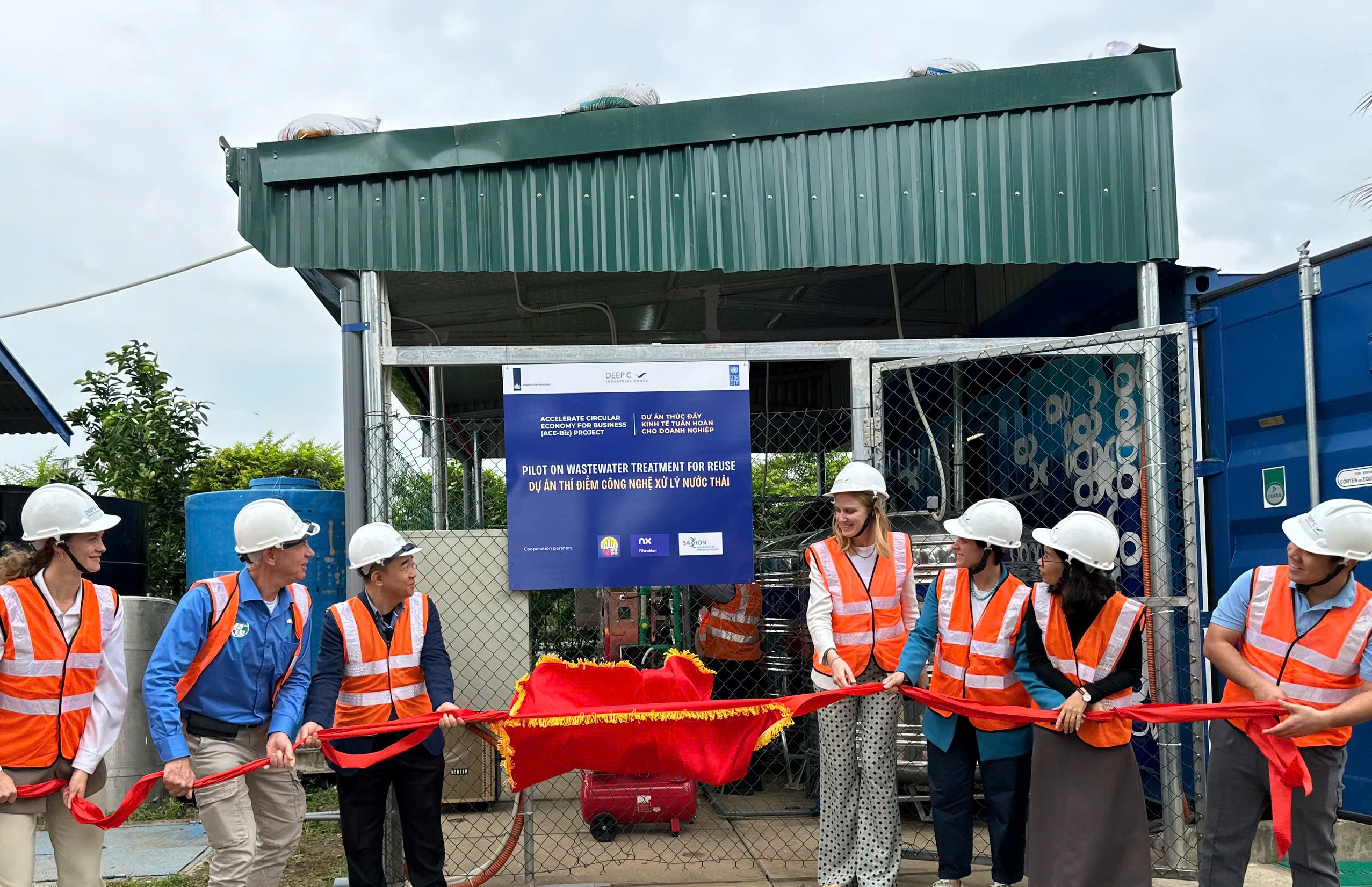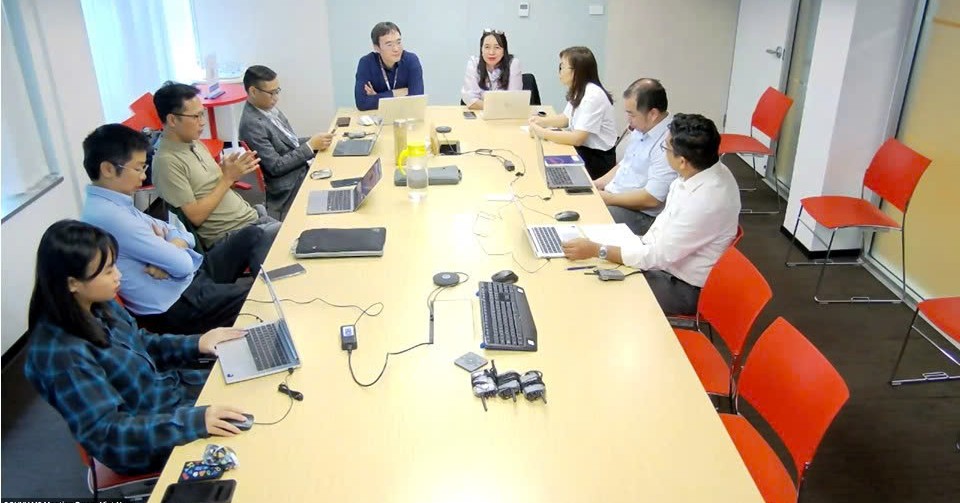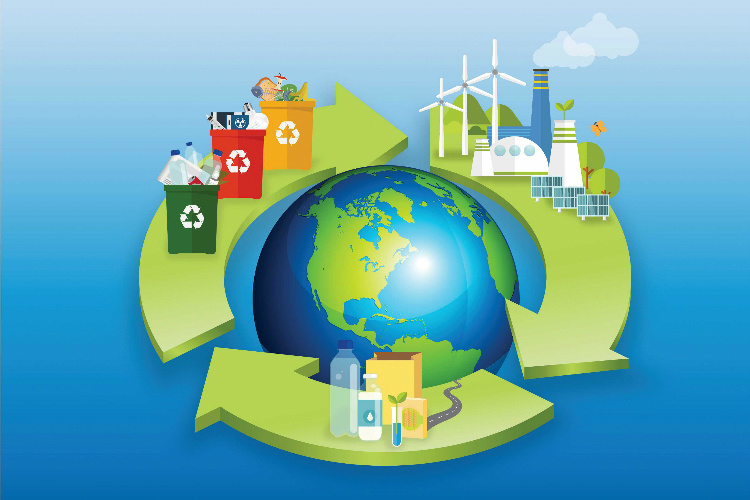
The draft CE regulatory sandbox specifies the conditions and criteria for participating in the pilot mechanism. Accordingly, an organization will be considered for a Certificate of Participation in the Pilot Mechanism when it meets all of the following conditions and criteria:
Conditions:
- Be a legal entity established and operating legally in Vietnam, or operating in the form of a partnership, private enterprise, or cooperative; not in the process of division, separation, consolidation, merger, transformation, dissolution, or bankruptcy according to a decision that has been issued.
- Have financial capacity or a clear and feasible financial access plan; no bad debt, serious tax violations, or violations of information disclosure regulations as prescribed by law.
- Have a specific circular economy project or a specific circular economy project proposal in the prescribed fields, including: Agriculture, forestry and fishery; industry; renewable energy; construction materials.
“Circular economy” is a modern economic activity organization model with a closed and interconnected nature of many production units linked together on the principle of effectively utilizing connecting services (finance, logistics, information technology and communication), towards a circular production linkage to: save production costs and optimize added value on the basis of minimizing waste in the production process, rationalizing the input – output process of processes associated with innovation, improving labor productivity and income of workers, producing and using renewable energy sources rationally in production, restoring renewable resources, promoting sustainable consumption, reducing emissions and contributing to responding to climate change and environmental protection.
Criteria:
- The circular economy project has a feasible plan and has the potential to promote positive impacts in terms of economy, society and environment, in which the economic impact is dominant, reflected in the profits of enterprises, labor productivity, employment and income for employees from the implementation of the project.
- The circular economy project mainly uses domestic input materials.
- The circular economy project is designed on the basis of accessing, applying and mastering the achievements of the Industrial Revolution 4.0; in case of importing and using advanced technologies, there must be a clear and feasible plan for technology transfer, mastery and development of technology in Vietnam.
Six Policies within the Pilot Mechanism
The draft outlines six policies within the Pilot Mechanism, including: Industrial park and economic zone policies; green classification; technology introduction and transfer policies; green credit and green bond policies; human resource development support policies; and land policies. Specifically:
Industrial Park and Economic Zone Policies
According to the draft, circular economy projects participating in the Pilot Mechanism with industrial – energy and service components with a total proportion of at least 50% of the total revenue are allowed to be implemented in industrial parks and economic zones and enjoy investment incentives in accordance with regulations of law on industrial parks and economic zones.
Green Classification
Green classification is the basis for considering and determining the level of policy incentives for circular economy projects within the framework of the pilot mechanism, including technology consulting and technology transfer consulting policies; green credit policies; human resource development policies; land policies.
The circular economy development pilot mechanism is a limited testing environment, limited in scope and time, in which participating organizations can test models and solutions for circular economy development in specific areas as prescribed in this Decree and under the supervision of competent state agencies to control risks during the testing process.
Green classification for circular economy projects participating in the Pilot Mechanism includes:
-
Complete circular economy project: A circular economy project consisting of a series of farming, aquaculture, exploitation, collection, production, processing, recycling, and regeneration activities that create a chain of continuous material flow cycles, forming a network and a value chain of activities that do not emit greenhouse gases into the environment. The complete circular economy project operates on the principle of using all products, by-products, waste products and emissions of the initial production and processing cycle to be recycled and reused as raw materials, means and input tools for the next production, processing, manufacturing and regeneration cycle.
-
Partial (part) circular economy project: A circular economy project consisting of a series of farming, aquaculture, exploitation, collection, production, processing, recycling, and regeneration activities that create a chain of continuous material flow cycles, forming a value chain. In which, the total amount of greenhouse gas emission reduction of the chain of farming, aquaculture, exploitation, collection, production, processing, recycling, and regeneration activities that make up the chain of activities has a greenhouse gas emission reduction rate greater than the greenhouse gas emission rate.
The confirmation of a project or a component of a project belonging to the list of complete circular economy projects or partial circular economy projects is carried out according to one of the following two options:
-
Option 1: Organize conformity assessment in accordance with the provisions of law on product and goods quality, law on measurement and other relevant laws.
-
Option 2: Competent state agencies confirm that the project or a component of the project belongs to the green classification list.
Technology Introduction and Transfer Policies
According to the draft, circular economy projects participating in the pilot mechanism are supported by the State and local governments to connect with technology consulting experts, supporting up to 50% of the cost of technology consulting experts. Organizations participating in the Pilot Mechanism establish a list, professional information dossier, expert capacity dossier, and dossier proving reasonable costs in accordance with the provisions of tax law, science and technology law, and other laws on preferential payment for experts working in projects participating in the pilot mechanism.
For circular economy projects participating in the Pilot Mechanism that receive technology transfer, the State exempts import tax and transfers technological equipment serving projects participating in the pilot mechanism, and enjoys the preferential project regime in carrying out customs procedures, inspection and supervision of customs for exported and imported goods. Organizations participating in the Pilot Mechanism establish a list of information and descriptions of technologies, including type name, field, origin, applicability of technology, preliminary assessment of development potential in the future, and documents showing interest in consumption, off-take and use of output products produced by technologies used in circular economy projects registered to participate in the Pilot Mechanism.
The State supports up to 50% of the cost for organizations to rent and purchase digital transformation solutions to implement circular economy projects.
Green Credit and Green Bond Policies
Circular economy projects participating in the Pilot Mechanism that are granted a Certificate of Participation in the pilot mechanism are allowed to access, mobilize, borrow preferential loans, and borrow loans without Government guarantee for green credit from credit institutions, branches of foreign banks, international financial institutions, Vietnam Development Bank, local development investment funds, social security funds, environmental funds, green development funds, science and technology development funds of enterprises, organizations and financial institutions.
Green bond policy: Circular economy projects participating in the Pilot Mechanism that are granted a Certificate of Participation in the Pilot Mechanism are allowed to cooperate with competent and qualified units that are allowed to issue green bonds in accordance with the provisions of law on bonds, and are allowed to cooperate with local development investment funds to issue local government green bonds, and are allowed to link with domestic and international partners to build and pilot a green bond trading floor, voluntary carbon credits applying blockchain technology, NFT, anti-counterfeiting technology with RFID chips.
Each province and city is not allowed to have more than 05 organizations participating in the Pilot Mechanism that are allowed to issue green bonds and only 01 unit is allowed to cooperate and link with the local development investment fund to pilot the operation of a green bond trading floor and voluntary carbon credits. The term of green bonds, the pilot operation time of the green bond trading floor and voluntary carbon credits do not exceed the term of the project participating in the pilot mechanism, unless there are other new regulations at the level of Law and Resolution of the National Assembly.
Organizations participating in the Pilot Mechanism, after being granted a Certificate of Participation in the Pilot Mechanism, implement the process of issuing green bonds in accordance with the provisions of law on bond issuance.
Human Resource Development Support Policies
The draft clearly states that the State supports up to 70% of the total cost of a business administration course for Organizations participating in the Pilot Mechanism.
The State supports up to 50% of vocational training tuition fees and job conversion tuition fees according to the tuition fee notices issued by vocational education institutions but not exceeding 03 months of base salary for each employee in the area implementing the circular economy project participating in the Pilot Mechanism. Organizations participating in the Pilot Mechanism establish a list of employees who need vocational training and career conversion and send it to the competent unit that issues and revokes the Certificate of Participation in the Pilot Mechanism for approval.
The Government and People’s Committees of provinces and centrally-run cities are responsible for connecting labor supply units, vocational education institutions, etc. to participate in the Pilot Mechanism and other support activities as prescribed, providing a source of labor that ensures quality and sufficient quantity as required for the implementation of circular economy projects.
Land Policies
According to the draft, organizations participating in the Pilot Mechanism are allowed to use land for multi-purpose combination for the types of land specified in Clause 2 and Point d, Clause 3, Article 218 of the Land Law, including the roof, water surface, and surrounding fences within the planning boundaries of the circular economy project participating in the Pilot Mechanism. The land area used for combined purposes does not exceed the land area used for the main purpose.
The draft clearly states that local governments of provinces and cities prioritize the use of available clean land, and are responsible for clearing the site in case investors advance money to clear the land in the locality with location, terrain and characteristics suitable for the scale of the circular economy project granted the Certificate of Participation in the Pilot Mechanism expected to be deployed to build the project.
The Ministry of Planning and Investment is seeking comments on this draft at the Ministry’s Electronic Information Portal.











